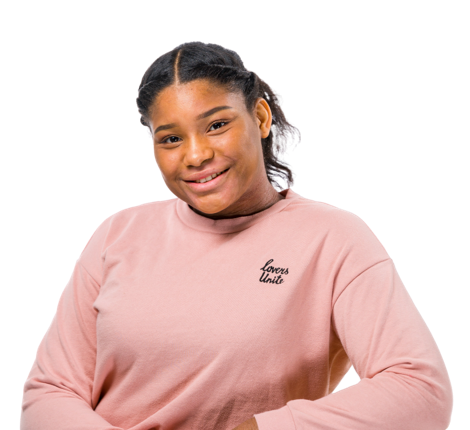Fatima is 17, but she came to Connecticut Children’s with a condition more common to someone in their 70s. It began in 2019 with a phone call from school, with the suggestion that she might need glasses. In very short order, Fatima went from having blurry vision to being completely blind.
The problem was cataracts, something usually associated with old age. In her case, they were a rare side effect of steroids she was taking for a skin condition. And Fatima’s cataracts were especially severe, completely covering her lenses with thick white tissue that blocked most of the light from reaching her eyes. “I leaned on my family a lot,” Fatima says. “Feeling became a way of seeing. If I was making a shake, I would have to identify the mango by feeling it. I didn’t know about cataracts; I thought this was permanent.”
The doctors she was seeing told her family she would have to wait seven months for an appointment, so they brought her to Connecticut Children’s. And that’s when things changed for the better. Thanks to the skill and expertise of Connecticut Children’s Division of Ophthalmology, Fatima became the first patient to undergo cataract surgery at the children’s hospital. Within 24 hours of her surgery, Fatima’s eyesight was 20/20 and today, she sees as well as she did before this started. But, she says, her attitude about sight has changed. “I’m never going to take this for granted again,” she says.
Now, she is back to her favorite pastimes—reading and playing tenor sax—and she has just about caught up from all the classes she missed at school. So, she’s started looking at colleges and is interested in a career in business.
